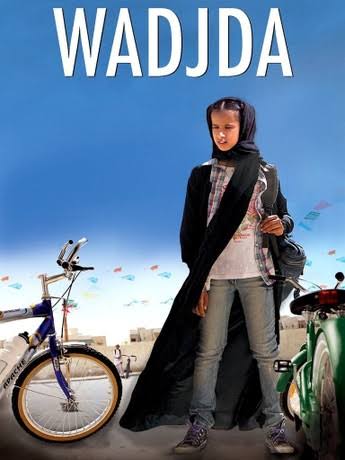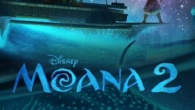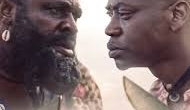
Wadjda (2012)

Wadjda: A Spirited Bicycle Ride for Freedom
Wadjda, a charming coming-of-age story set in Riyadh, Saudi Arabia, follows the journey of a ten-year-old girl named Wadjda. With a rebellious spirit and a love for all things blue, Wadjda dreams of owning a bicycle to race her friend Abdullah. However, societal norms deem bicycles inappropriate for girls, and Wadjda faces numerous obstacles in her quest.
Details:
- Genre: Drama, Comedy
- Release Name: Wadjda
- Tagline: “She just wants to ride.”
- Audio Language(s): Arabic
- Runtime: 100 minutes
- Release Date: September 13, 2012 (Toronto International Film Festival), April 17, 2013 (Saudi Arabia)
- Production Company: Rotana Studios
Wadjda’s Cast:
The characters of Wadjda are brought to life by a talented cast:
- Waad Mohammed: A captivating performance by a young newcomer, Waad Mohammed embodies Wadjda’s determination and spirit.
- Reem Abdullah: Wadjda’s supportive mother, played with warmth and strength by Reem Abdullah.
- Abdullrahman Al-Gohan: Wadjda’s kind-hearted but traditional father, portrayed by Abdullrahman Al-Gohan.
- Ahd Kamel: Ms. Hussa, the strict yet understanding headmistress, played by Ahd Kamel.
- Abdulla Al-Rahman: Abdullah, Wadjda’s friend and competitor, played by Abdulla Al-Rahman.
The use of non-professional actors adds a layer of authenticity to the film, making the characters and their struggles relatable to a global audience. la la la
The Crew Behind Wadjda
Wadjda’s success stems from the collaborative efforts of a talented crew:
- Director: Haifaa Al-Mansour – The first female Saudi filmmaker to direct a feature film, Al-Mansour injects her own experiences and a feminist perspective into the story.
- Screenwriter: Haifaa Al-Mansour and Brad Ellis – The script, co-written by Al-Mansour and Ellis, balances humor and social commentary, creating a nuanced portrayal of life in Saudi Arabia.
- Cinematographer: David Gutnik – Gutnik’s camerawork captures the vibrant energy of Riyadh’s streets and the intimate moments within Wadjda’s world.
- Music by: Khaled Ayyad – The film’s score blends traditional Arabic instruments with contemporary sounds, reflecting Wadjda’s youthful spirit and the cultural context.
Wadjda stands as a testament to the growing presence of Saudi Arabian filmmakers and the power of storytelling to transcend borders.
Filming locations:
Wadjda’s story unfolds against the backdrop of Riyadh, offering a glimpse into everyday life in the Saudi capital:
- Neighborhood streets: The film takes viewers through the bustling streets and traditional houses of Wadjda’s neighborhood.
- Schools: The school setting becomes a central location where Wadjda navigates societal expectations and forms friendships.
- Shops and markets: Scenes in shops and markets showcase the local culture and Wadjda’s resourcefulness in raising money for her bicycle.
Filming on location in Riyadh imbues the story with authenticity and allows viewers to experience the city alongside Wadjda.
The Soundtrack of Wadjda: A Blend of Tradition and Rebellion
The music of Wadjda plays a crucial role in setting the mood and amplifying the emotions of the story. Here are some key tracks:
- Original Score: Composed by Khaled Ayyad, the score seamlessly blends traditional Arabic instruments like the oud and ney with contemporary beats. This creates a unique soundscape that reflects both the cultural context and Wadjda’s youthful spirit.
- “We Wanna Ride” by Hamza Bukhari: This upbeat pop song with rebellious lyrics perfectly captures Wadjda’s yearning for freedom and her desire to break societal norms.
- “Wadjda” by Abri Sahem: A beautiful and melancholic song that reflects on Wadjda’s dreams and struggles, sung by the renowned Saudi singer Abri Sahem.
- Traditional Music: Touches of traditional music are woven into the film, creating a sense of cultural authenticity and grounding the story in its Saudi Arabian setting.
The soundtrack of Wadjda is more than just background music; it becomes an integral part of the narrative, propelling the story forward and leaving a lasting impression.
Fact vs. Fiction: The Inspiration Behind Wadjda
Wadjda is a fictional story, but it draws inspiration from real-life experiences and social realities in Saudi Arabia:
- Gender Roles: The film tackles the issue of gender restrictions in Saudi Arabia, where bicycles were traditionally seen as inappropriate for girls. While the situation is evolving, Wadjda reflects the experiences of many young Saudi women navigating societal expectations.
- Education: The film portrays the importance of education for girls in Saudi Arabia. Wadjda’s intelligence and determination highlight the value placed on education by many Saudi families.
- Social Change: While the film doesn’t shy away from social issues, it also showcases the strength and resilience of Saudi women like Wadjda and her mother. Wadjda’s journey can be seen as a metaphor for the ongoing dialogue about social change in the country.
Wadjda may be a work of fiction, but it sheds light on real experiences and social issues, sparking conversations and inspiring audiences worldwide.
Box Office Success and Critical Acclaim for Wadjda
Wadjda’s impact goes beyond its cultural significance. Here’s a look at its box office performance and critical reception:
- Box Office: Wadjda garnered a modest box office gross of around $1.4 million globally. However, its significance lies in being the first Saudi Arabian film to be commercially distributed internationally and achieving critical acclaim.
- Critical Reception: Wadjda received widespread praise for its heartwarming story, strong performances, and social commentary. It won numerous awards at international film festivals, including the World Cinema Audience Award for Drama at the Sundance Film Festival.
Wadjda’s success paved the way for more Saudi Arabian films to gain international recognition and sparked conversations about the growing film industry in the region.
Wadjda: Reviews Worth Reading (Social Media Buzz)
Here’s a glimpse of what audiences are saying about Wadjda online:
- “A charming and heartwarming story about a girl’s determination to defy expectations. A must-watch!” – Sarah Jones (@sarahmovies)
- “Wadjda is a breath of fresh air. It’s funny, moving, and sheds light on a culture not often seen in cinema.” – David Lee (critic for The Film Stage)
- “Waad Mohammed’s performance is simply captivating. She is the heart and soul of this film.” – Aisha Hassan (@AishaReviews)
- “Wadjda is a powerful story about female empowerment that resonates on a global level.” – NPR review
With its universal themes of chasing dreams, defying limitations, and the importance of family, Wadjda continues to resonate with audiences worldwide.
Wadjda vs. Similar Films: A Celebration of Girlhood
Wadjda joins a rich tradition of films that explore the complexities of girlhood:
Wadjda vs. Persepolis (2007):
- Setting: Wadjda is set in contemporary Saudi Arabia, while Persepolis is an animated film depicting the Iranian Revolution through a young girl’s eyes.
- Focus: Both films explore the challenges faced by girls growing up in societies with strict social codes. Wadjda focuses on gender roles, while Persepolis delves into political upheaval.
- Style: Wadjda uses live-action to create a realistic portrayal, while Persepolis employs a unique animation style.
Wadjda vs. Bend It Like Beckham (2002):
- Genre: Wadjda tackles social restrictions, while Bend It Like Beckham focuses on cultural expectations within a British-Indian family.
- Tone: Wadjda has a blend of humor and social commentary, while Bend It Like Beckham leans more towards lighthearted comedy.
Wadjda vs. Water Lilies (2007):
- Coming-of-Age: Both films explore themes of friendship, identity, and self-discovery during adolescence.
- Setting: Wadjda is set in Saudi Arabia, while Water Lilies takes place in a suburban French town.
- Social Issues: Wadjda tackles gender roles, while Water Lilies explores issues of sexuality and societal pressures.
Wadjda vs. Lion (2016):
- Genre: Wadjda is a drama-comedy, while Lion is a biographical drama about a young man searching for his lost family.
- Themes: Both films explore themes of family, resilience, and the importance of home. Wadjda focuses on the immediate family unit, while Lion delves into the broader concept of belonging.
- Narrative Structure: Wadjda is a linear story, while Lion utilizes flashbacks to piece together the protagonist’s past.
Wadjda vs. Capernaum (2018):
- Social Commentary: Both films use coming-of-age narratives to highlight social issues. Wadjda tackles gender limitations, while Capernaum sheds light on the plight of refugees and child poverty.
- Setting: Wadjda is set in Saudi Arabia, while Capernaum takes place in contemporary Beirut, Lebanon.
- Style: Wadjda uses a more traditional filmmaking approach, while Capernaum employs a gritty neorealist style.
While each film explores girlhood through a unique lens and cultural context, they all celebrate the power of young women to dream big, challenge limitations, and find their voices in the world.
Where to Watch Wadjda: Finding Your Ride to Freedom
Finding Wadjda to stream or download might require some effort as it’s an independent film. Here are some options to explore:
- Streaming Services: Availability can change, so checking platforms like Amazon Prime Video, Apple TV, or Google Play Movies & TV is recommended.
- DVD/Blu-Ray: Purchasing a physical copy might be an option through online retailers or specialty stores.
- Local Film Festivals/Cinemas: Independent cinemas or film festivals might occasionally screen Wadjda.
Remember: Copyright laws are important, so be sure to use authorized distributors when seeking out Wadjda.
Conclusion: A Ride Worth Taking
Wadjda is a captivating film that transcends cultural boundaries. It’s a heartwarming story about a girl’s determination, a celebration of girlhood, and a glimpse into contemporary Saudi Arabia. While finding Wadjda to watch might require some searching, the journey is well worth it. So, grab your metaphorical bicycle, hop on for a ride with Wadjda, and experience the joy of chasing dreams and defying expectations.






